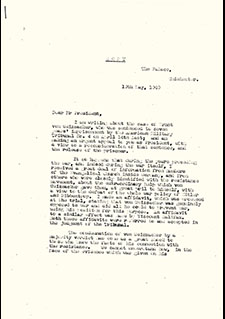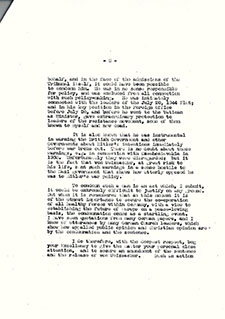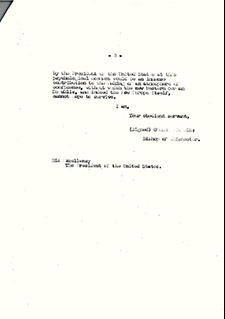Support for Ernst von Weizsäcker
In the spirit of reconciliation, George Bell interceded with the American president for Ernst von Weizsäcker. In the next to last Nuremberg War Crimes Trial, Allied judges had sentenced the top diplomat to seven years in prison for “crimes against humanity”.
After Weizsäcker had been sentenced on May 19, 1949, Bell wrote to the American president: The condemnation of von Weizsäcker by a majority verdict has come as a great shock to those who know the facts of his connection with the resistance. We cannot understand how, in the face of the evidence which was given on his behalf, and in the face of the admission of the Tribunal itself, it could have been possible to condemn him ... He was intimately connected with the leaders of the July 20, 1944 Plot; and in his key position in the Foreign Office before July 20, and before he went to the Vatican as Minister, gave extraordinary protection to leaders of the resistance movement, some of them known to myself and now dead.
Bell asked the president to do what he could to obtain Weizsäcker’s release and argued that Such an action by the President of the United States at this psychological moment would be an immense contribution to the making of an atmosphere of confidence, without which the new Western German Republic, and indeed the new Europe itself, cannot hope to survive.
Von Weizsäcker was released in early 1950 in the course of a general amnesty. His role in the “Third Reich” remains controversial to this day.
Source / title
- © Archiv des Ökumenischen Rates der Kirchen Genf, 301.43.13/6



